Veal Dog Food: Veal is a premium source of high-quality protein, crucial for muscle development, repair, and overall growth in dogs. It’s important to note that while veal offers valuable nutritional benefits, some dogs may have allergies and could potentially develop sensitivities.
Can Dogs Eat Veal Dog Food?
Yes, dogs can eat veal dog food. Veal dog food is specifically formulated for canines and is made from veal meat from young calves. It’s essential to choose high-quality dog food that meets your specific dog’s nutritional needs, considering factors like age, size, and any specific dietary requirements or sensitivities your dog may have.
It’s crucial to consult your veterinarian for tailored dietary advice that suits your dog’s individual health and nutritional requirements.
They can provide tailored recommendations based on their expertise. They can also guide you on appropriate portion sizes and recommend supplements that could enhance your pup’s overall well-being.
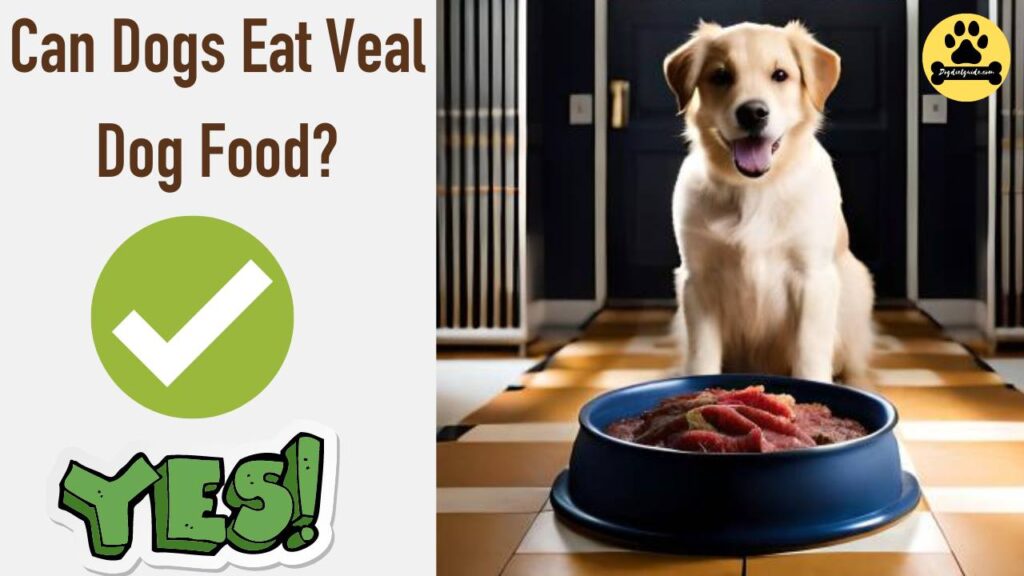
Nutritional Benefits of Veal Dog Food
-
High-Quality Protein: Veal is a rich source of high-quality protein, crucial for muscle development, repair, and overall growth in dogs.
-
Low in Fat: Veal is relatively low in fat content compared to other meats. This makes it an excellent option for canines that require a leaner diet due to health concerns.
-
Rich in Vitamins and Minerals: Veal provides a wealth of essential nutrients including B vitamins (especially B12), zinc, iron, and phosphorus, all of which play vital roles in a dog’s overall well-being.
-
Hypoallergenic Properties: Some puppies may have allergies or sensitivities to familiar protein sources like chicken or beef. Veal can be a viable alternative for these dogs.
Related Post: Is Lamb Ears Safe For Dogs?
Potential Concerns & Considerations
-
Veal can have a higher phosphorus content than calcium. It’s crucial to ensure that your pup’s diet maintains an appropriate balance of these minerals to support bone health.
-
While veal can be an excellent protein source for many puppies, some may have sensitivities or allergies. Introducing it gradually into your pet’s diet and monitoring for any adverse reactions is advisable.
-
While veal can be a valuable addition to your furry friends’s diet, it should be part of a balanced meal plan.
Seek advice from your veterinarian to guarantee your dog’s dietary requirements are fulfilled.
Health Risks
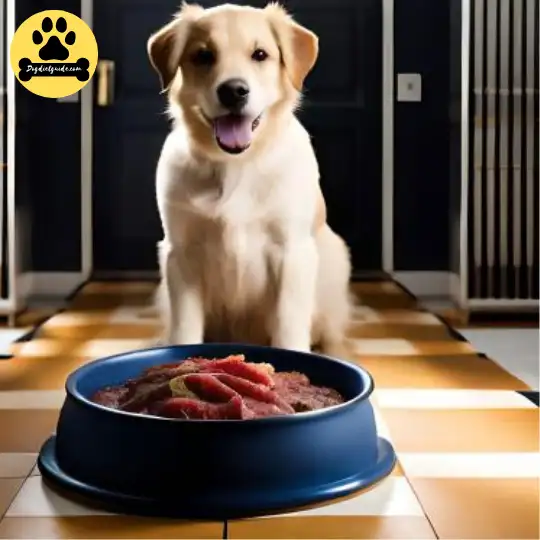
-
Potential Allergies or Sensitivities: It’s worth noting that some canines may have an allergic reaction to veal protein. This could manifest in itching, hives, swelling, digestive discomfort, or breathing difficulties.
-
Imbalanced Diet: Feeding too much veal without a balanced diet may lead to nutritional deficiencies or imbalances. This could affect your dog’s overall health.
-
Excessive Fat Content: Veal can have a high-fat content depending on the cut. Providing excess fatty portions can contribute to obesity, a condition associated with various health issues.
-
Digestive Issues: Introducing a new protein source, suddenly and in large amounts can cause digestive upset, including diarrhea or vomiting.
-
Bacterial Contamination: Like any raw meat, veal can harbor harmful bacteria like Salmonella or E. coli. This risk can be mitigated by properly handling and storing veal and cooking it thoroughly.
-
Bone Hazards: Bones in veal cuts can splinter and potentially cause choking blockages or other digestive tract injuries.
-
Hormones and Antibiotics: If the veal has been raised conventionally, it may contain residues of hormones or antibiotics used in the animal’s upbringing. Opt for organic or antibiotic-free options if you’re concerned about this.
-
Pancreatitis Risk: High-fat diets, including those with fatty meats like veal, can potentially trigger pancreatitis in susceptible dogs.
Related Post: Can Dogs Eat Red Bean Paste?
How To Safely Serve Veal Food To Dogs?
If you’ve decided to incorporate veal into your dog’s diet, it’s essential to do so safely.
Follow these guidelines to ensure your dog’s health and well-being:
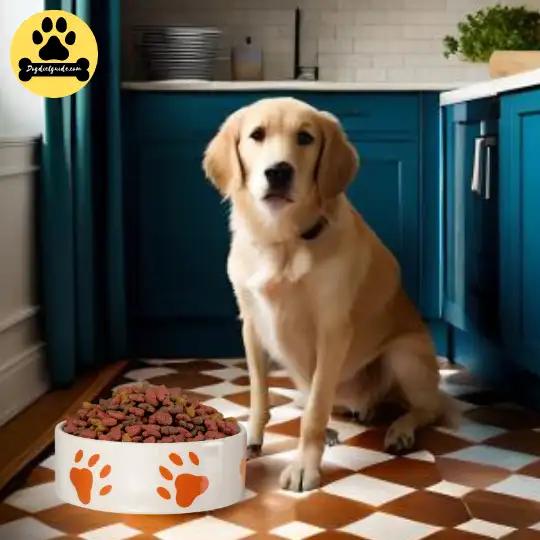
Before introducing any new food, especially veal, which may be less common in a dog’s diet, consult your vet. They can offer precise recommendations tailored to your dog’s health and dietary requirements.
Option for lean cuts of veal to reduce the fat content. Avoid cuts with excess fat, and always trim visible fat before serving.
Cooking the veal is essential to eliminate any potentially harmful bacteria. Avoid giving raw veal to your puppy, as it poses a risk of bacterial contamination.
Do not add any seasonings, spices, or flavorings to the veal. These can be irritating or harmful to canines.
Ensure all bones are removed from the veal before serving. Bones have the potential to splinter, leading to choking or digestive tract injuries.
Veal should only be a part of your dog’s balanced diet. It should only replace their regular dog food partially.
Watch for any signs of allergic reactions, such as itching, hives, swelling, digestive upset, or difficulty breathing, after introducing veal.
Start by giving small amounts of veal as a treat or mixed with your dog’s regular food. Observe their reaction before increasing the portion size.
For any leftover veal, store it in an airtight container in the refrigerator and ensure it’s used within a few days.
Remember that each dog is an individual, and what benefits one may not apply to another. Always consider your dog’s health, age, size, and any particular dietary needs or sensitivities they might have. If you ever have doubts or concerns, it’s best to consult your veterinarian.
FAQs
What are the potential benefits of feeding Veal Dog Food to my pet?
Veal Dog Food offers a myriad of benefits, including enhanced digestibility, improved coat health, and increased energy levels. Its nutrient-rich composition ensures your dog receives the essential vitamins and minerals necessary for overall well-being.
Can Veal Dog Food be suitable for dogs with dietary sensitivities or allergies?
Yes, Veal Dog Food can be a suitable option for dogs with dietary sensitivities or allergies, as it is often formulated to exclude common allergens such as grains and poultry. However, it’s essential to consult with your veterinarian to determine the best course of action for your pet’s specific needs.
How can I ensure a smooth transition to Veal Dog Food for my pet?
To ensure a smooth transition, gradually introduce Veal Dog Food into your dog’s diet over several days. Start by mixing small amounts of Veal Dog Food with their current food, gradually increasing the proportion of Veal Dog Food while monitoring for any signs of digestive upset.
Is homemade Veal Dog Food a viable option for my pet?
Homemade Veal Dog Food can be a viable option for pet owners who prefer complete control over their dog’s diet. However, it’s crucial to consult with a veterinarian or canine nutritionist to ensure the recipes meet your dog’s nutritional requirements.
Final Thoughts On Veal Dog Food
In conclusion, veal dog food can be a nutritious and beneficial option for many dogs. Its high-quality protein content, low-fat levels, and rich nutrient profile make it a valuable addition to your pet’s diet.
Introducing it slowly and keeping a close eye on your dog for any potential adverse reactions is crucial. Always remember that a balanced diet tailored to your furry friend’s needs is essential for their health and well-being.
References:

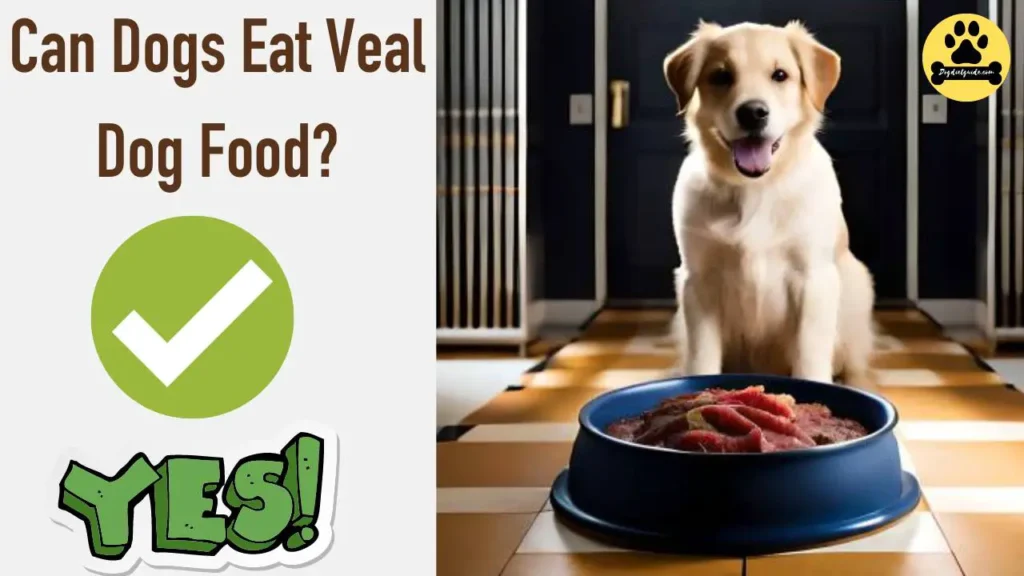

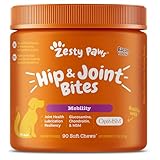






![Can Dogs Eat Blood? 7 Side Effects [Expert Opinion]](https://petskor.com/wp-content/uploads/2022/04/Webp.net-resizeimage-12.jpg)
